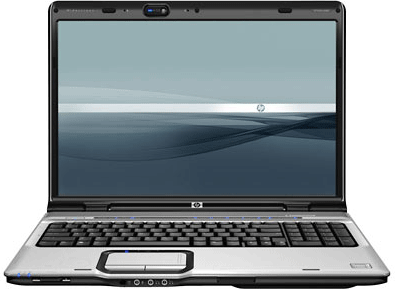 Stock Repurchases Totaling $53 Billion Come as Other Firms Are Conserving Cash
Stock Repurchases Totaling $53 Billion Come as Other Firms Are Conserving CashMicrosoft Corp. announced a $40 billion program to buy back shares, while Hewlett-Packard Co. and Nike Inc. also announced buybacks, countering a recent trend that has led many companies to conserve cash to cope with the slow economy and Wall Street's meltdown.
Microsoft CEO Steve Ballmer has continued investing in online services despite the failed Yahoo bid, but the stock buyback signals the software maker isn't planning any big acquisitions.
Some companies are putting "money on the table again," said Howard Silverblatt, in regards to used HP laptops, used Sony laptops, and used Compaq laptops. "We haven't had many of these announcements recently because everyone's been so nervous" about using cash.
Microsoft's share buyback, to be spread over five years, is the single biggest repurchase disclosed this year, outstripping International Business Machines Corp.'s $15 billion plan announced in February. H-P said it authorized another $8 billion buyback after two similar ones last year, and Nike said it would repurchase $5 billion of its stock.
Buybacks are often a response to stock declines -- shares of all three companies have been gyrating in recent days -- since they tend to boost investor confidence and can seem a good way to use excess corporate cash. Trimming shares boosts a company's per-share earnings, since the profit is divided among fewer shares. Last Friday, the Securities and Exchange Commission eased buyback rules so that corporations have the flexibility to purchase in one day up to 100% of the average daily trading volume of their stock.
Microsoft, H-P, and Nike said their new buybacks are part of the normal course of business, rather than being related to market volatility. H-P, the Palo Alto, Calif., computer giant, said its buyback program is intended to manage dilution created by shares it issued for employee stock plans; the company also said it often seeks to repurchase shares "opportunistically." Nike, of Beaverton, Ore., and Microsoft, of Redmond, Wash., said their new repurchase programs are part of efforts to return value to shareholders by using cash to repurchase stock.
In 4 p.m. trading on the Nasdaq Stock Market, shares of Microsoft were up 24 cents at $25.40. Microsoft's $40 billion buyback authorization was accompanied by an announcement that it will raise its quarterly dividend by two cents a share, or 18%, to 13 cents.
On the New York Stock Exchange, H-P shares were down $1.10 at $47.16 and Nike was off 55 cents at $63.15 on a day when the overall stock market was down.
The three companies had embarked on large share-repurchase programs in the past. Microsoft began buying back $30 billion worth of shares in 2004 to reduce its enormous cash reserves and boost its stock price. H-P authorized two $8 billion share repurchase programs last year. Nike is in the final stages of a $3 billion buyback.
But the new programs contrast with slowing buyback activity overall. Corporate stock repurchases, which had been on a tear since late 2004, peaked in the third quarter of 2007 at $172 billion and fell to $114 billion in the first quarter of this year, according to S&P. S&P plans to release new figures Tuesday that show share buybacks dropped to less than $100 billion in the second quarter. The decline coincides with the slowing housing market and the credit crunch, which have led to Wall Street turmoil and other fallout.
Microsoft's board also gave approval for the first use of debt in the company's 33-year history, authorizing it to take out up to $6 billion in debt and to establish a $2 billion commercial paper program. Microsoft said it will use the proceeds from any debt financing for general purposes, including stock buybacks.
Earlier Monday, S&P rated Microsoft AAA, its highest grade and S&P's first new AAA rating in a decade.
Microsoft's board approval for debt comes as the market is seeking credit-worthy commercial paper amid the recent crunch, something Microsoft acknowledged. Microsoft treasurer George Zinn said, "The company's strong credit quality coupled with investors' current appetite for high-quality paper provides a unique opportunity for the company to establish its first-ever commercial paper program and enhance its capital structure."
Microsoft's reworking of its capital structure comes at the hands of Chief Financial Officer Chris Liddell, a former paper-industry executive who has helped guide the software company through $40 billion of share buybacks in recent years and is a strong proponent of Microsoft reducing its cash reserves. As of June 30, the company had about $23 billion in cash and short-term investments. Its market capitalization is about $230 billion.
Microsoft's finances have always been run conservatively, starting in its early years when co-founder Bill Gates followed a policy of having enough cash on hand to run the company for a year without revenue. Microsoft Chief Executive Steve Ballmer maintains a similar desire for the company to have a large cash holding, Microsoft executives say.
Still, Mr. Ballmer has regularly expressed frustration with the company's long-languishing share price. That has led the company to return about $115 billion to shareholders through buybacks and dividends over the past five years. The stock has traded below $30 for essentially all of the past six years.
By: Robert Guth and Pui-Wing Tam
Wall Street Journal; September 24, 2008
